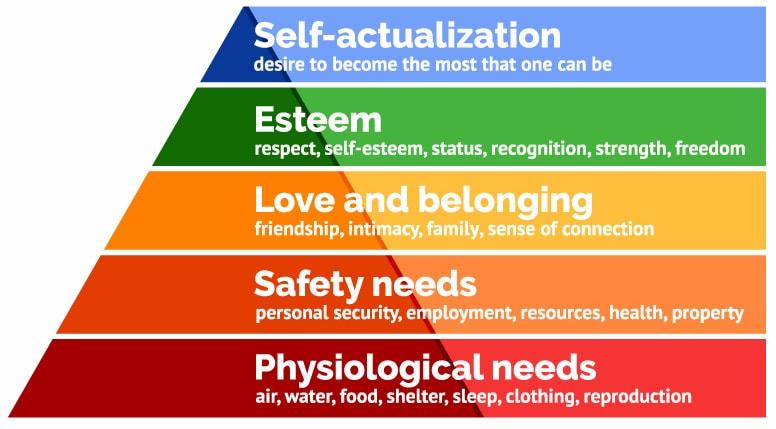principal's message

coronavirus and our community
It is safe to say that this has been a term like no other. After the fires that ravaged so much of our country over the summer and early Term 1, it is almost unimaginable that we are now dealing with an entirely different but equally devastating challenge just a few months later. I want to acknowledge that many Australians continue to forge a path to recovery after our summer fire season and my thoughts are with them as they cope with the additional stress of Coronavirus.
Over the past week, I have heard daily new accounts of members of our school family losing their jobs and can only imagine that such stories from our community will, unfortunately, continue for some time to come. I believe our community is strong - as individuals and as a group. I believe we will get through this together. However, it would remiss of me not to acknowledge that hard times are ahead for many of us.
To all our families, but especially those facing challenging times, our school and school council have you in mind. There are many unknowns ahead, but we pledge that no matter what, we will do whatever we can to support your children and your family.
Our school community is like no other and while we face an experience like no other, I feel incredibly proud to know that we will weather this storm together.
Cheer oh cheer for Brunswick North West
Shoulder to shoulder (with an additional 1.5m) we face every test
Helping each other; the young and the old
All in together for the black, green and gold!
potential school closure
BNWPS continues to follow DET and DHHS guidelines in regard to COVID-19. Whilst there is a high possibility that we will start remote learning early in Term 2, school closures are not the decision of individual schools or principals, and therefore we will wait for confirmation from DET and then communicate any updates to families.
The possibility and duration of a school closure are at this stage is unknown. It is likely that, if the school is temporarily closed, we will not know the duration - even after the closure has started.
I appreciate there is a great deal of uncertainty at the moment and appreciate your patience and love to see those of you who are taking time to care for each other - society could learn from you and I personally, really appreciate it.
Please find included in this newsletter, information for families in the event of school closures in Term 2, 2020. Further information from DET is available here.
communications
In the event of a school closure next term, families will be able to communicate with staff through Sentral and emails only. Contact details will be provided in the event of a school closure.
Teachers are available to respond to email correspondence between 8.45am - 3.45pm each calendared school day they are rostered to work. Teaching teams will proactively provide home learning plans and will then be available each day to respond to questions and provide support to families in relation to learning at home.
Please be mindful of the frequency and tone of any emails to teaching staff; this is a new experience for everyone and maintaining respect and empathy for one another is essential.
School leadership will continue to proactively communicate with families regarding COVID-19 and general school updates and we will continue to be available for learning and wellbeing support where needed.
home learning plans
In the event of our school temporarily closing, home learning plans will be sent home to all families on a weekly basis, with additional supportive materials sent by individual teachers and a weekly newsletter with information, tips and supports for families.
Teaching teams will distribute a learning plan via email by 9.00am each Monday morning. This plan will be an overview of a week’s worth of learning for your child to complete whilst learning at home. Adaptations to learning will be provided to individual students from their classroom teacher where necessary.
The learning plan will be a one-week overview and will include a number of tasks from across the curriculum, including our specialist subjects and inquiry. We will continue to seek student voice and agency in their learning and we are currently considering assessment options, if the closure is prolonged. Teams will communicate this with all families as required.
The learning plan will also provide information for families on how long a task might take or the success criteria of a task. We will be providing tips and scope on how you might adapt lessons, but we will not be expecting any parents or carers to provide an instructional curriculum - most of you are not trained teachers, and those of you who are, generally have children that don’t want you to teach them!
As this is a new process for all of us, please communicate with teachers if you have any questions (and also if you find anything helpful - positive feedback helps us while we are exploring the new domain).
Students in grades F-2 will be able to access Seesaw to help share their learning with their teacher. Students in grades 3-6 have been prepped in using Google Classroom, which will be an integral part of a portion of the curriculum delivered remotely. Teachers will provide information to families on how to access and navigate these secure platforms.
We are aware of the limited ICT resources in some homes, however due to the remote learning nature of a school closure, some use of ICT will be required. Teachers will be communicating with students through online methods and as such, we will remind all students of their Acceptable Use Agreement in regards to online behaviour and will monitor students’ online etiquette in an ongoing way, however we do ask for support from families to also monitor all online behaviour.
Over the next few days, families will receive a survey link that asks about available devices in your home. We are seeking this information in order to support the distribution of school devices to families in need and to ensure our learning plans are accessible for all.
Early feedback from families has let us know that families are also looking for behaviour management techniques. Our teachers will certainly share our secrets with you! Each week, in our newsletter, we will provide families with practical approaches to managing behaviour in an educational setting, with theoretical information for those of you like to understand the 'why'. If you find you are experiencing challenges with your child meeting expectations, please let either your classroom teacher or school leadership know and we will support you - I am ready to conduct a restorative conversation over teleconference if needs be!
health & wellbeing
Maintaining the health and wellbeing of everyone is essential during these unusual times. The ongoing uncertainty and changes to our daily routine will have an impact on everyone, while many families will face additional stresses. Many of you would have heard of Maslow’s Hierarchy of Needs (image below) that demonstrates why an event such as this can unsettle so many people - with so many levels of human need compromised, proactive efforts to support our mental and physical health is vitally important.
We know that some students may experience a degree of social isolation which can increase levels of stress and anxiety. This will impact students in different ways, so our focus on student health and wellbeing will be critical to ensure students stay engaged in learning.
Whilst everyone is encouraged to maintain physical distance from each other, it is important that we continue to move and be active. Tom will be sending all families some ideas on how to keep up your exercise during school closures; adapt these to suit your family and your household, but don’t forget to keep moving!
When we change routines, some of our most basic needs can sometimes be overlooked. Without snack/lunch breaks, kids can sometimes forget to eat until quite late (and hangry kids don’t learn at their best!). Make sure you keep your children’s routines up with regular breaks and meals. In the event of an extended school closure next term, Sprout will consider different options on how it can support families through nutrition.
Social connection, friendship and intimacy are far more essential than many people first realise. With social distancing set to continue for a number of weeks, we must think creatively about how to maintain our social contacts with each other through regular connection. I have already heard of many individuals, families and organisations who are thinking creatively about their social contact and I love it!
- Should your children show signs of additional anxiety, stress or worry about their school work, please feel free to contact Wendy (white.wendy.p@edumail.vic.gov.au) for additional advice and support.
- If your child wants to talk to a professional about their feelings, they can contact Kids Helpline (1800 55 1800)
- Smiling Mind (app or website) can provide calming exercises for young people in times of stress.
- Online emotional support is available for people aged 12-25 through eHeadspace
staying sane over the holidays
It sounds like this past week has been a week like no other for many families. With politicians declaring virtually immediate holidays, limitations to socialisation and travel as well as the future prospect of remote learning, our school has heard that families are looking for forms of structure to help them get through the rest of the holidays.
Next term, teachers will start sending home learning plans, but we have heard you - you want some ideas now! Whilst I don't have kids of my own (unless you count the fur baby), I am an eternal big kid and I know that holidays is a careful balance of independent engagement without draining any more from the bucket. Below are just a few ideas on how you can provide some structure and engagement to your children's lives (and your homes) over the holidays - all entirely optional, but you don't need to tell the kids that!
The learning approach I would recommend for families over the next few weeks is Inquiry-based learning. This (in the briefest of summaries) is an approach to learning that involves young people exploring the world and asking questions. It is based in independent, critical thinking and agency, connected to the young person's real-world and encourages engagement and curiosity, which increases motivation and reduces arguments - ever notice how your child can't do one activity for more than a minute but might be able to play Lego (for example) for hours on end? Let's take advantage of their interests and extend their thinking! Another great benefit of Inquiry-based learning is that when students are in control of directing the learning, they are able to manage their own challenge level. This means you could have your two kids (one from grade 5 and the other in grade 1) both starting with the same idea and taking it to their own ends.
Below is a PDF with some very simple steps (and an example) of how you might approach inquiry learning at home over these 'holidays'.

